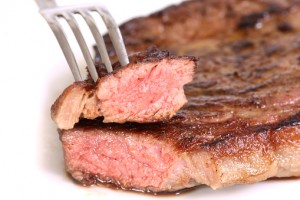Black stool causes, symptoms, and treatments
 Black stool can result from dietary changes to even revealing a serious medical condition, so it’s important to pay attention if you’re seeing black after a bathroom trip. Along with a change in color, black stool may also be tarry in texture and more foul-smelling, which is a clear signal of a serious underlying gastrointestinal problem.
Black stool can result from dietary changes to even revealing a serious medical condition, so it’s important to pay attention if you’re seeing black after a bathroom trip. Along with a change in color, black stool may also be tarry in texture and more foul-smelling, which is a clear signal of a serious underlying gastrointestinal problem.
Causes of black tarry stool
False melena: False melena is black tarry stool caused by food, supplements, medications, or minerals. Iron supplements can trigger false melena, along with foods that are blue, black, or green in color. Some examples of factors that can trigger false melena include black licorice, blueberries, iron supplements, lead, and bismuth.
Melena: This is a result of upper gastrointestinal bleeding in the esophagus, stomach, or small intestine. Other causes of melena include bleeding ulcer, gastritis, esophageal varices, and Mallory-Weiss tear – this is a tear of the mucus membrane that connects the esophagus and stomach.
Hematochezia: This is the passage of black tarry stool when bleeding is present in the parts of lower digestive tract, such as the colon, rectum, or anus.
Other causes: Other causes of maroon or black-colored stool may result from anal fissures, cut-off blood supply to the intestines, polyps or cancer, diverticulosis, hemorrhoids, inflammatory bowel disease, infection of the intestines, and trauma or foreign bodies.
Signs and symptoms of black poop
Signs and symptoms of black poop often relate to its underlying cause. Here is a list of potential signs and symptoms that may accompany black tarry poop:
- Abdominal pain and cramping
- Bloating or abdominal swelling
- Changes in bowel habits
- Diarrhea
- Gas or indigestion
- Flu-like symptoms
- Foul-smelling stool
- Nausea and vomiting
- Poor appetite
- Rectal pain and burning sensation
- Unexpected weight loss
Treatment and prevention for black tarry stool
 To properly diagnose the underlying cause of your black tarry stool your doctor will do a complete medical examination. They will run blood tests and imaging scans to determine any infection, blockages, or anything else that can contribute to black tarry stool.
To properly diagnose the underlying cause of your black tarry stool your doctor will do a complete medical examination. They will run blood tests and imaging scans to determine any infection, blockages, or anything else that can contribute to black tarry stool.
A colonoscopy or endoscopy may also be recommended to have a better look at the stomach and colon to check for any tears, polyps, or other sources of bleeding.
Treatment for black tarry stool depends on the underlying cause. Some possible treatments for black tarry stool include antibiotics, acid-reducing medications, surgery for abnormal veins, removal of polyps, or simple diet changes.
If black tarry stool is caused by your diet, you may wish avoid foods that are blue, black, or green in color. You will also want to increase your fiber intake to reduce tears in the colon. Ingest more raspberries, pears, whole grains, beans, and artichokes.
For some conditions, a high-fiber diet is not recommended. Your doctor will help you find the best way to eat based on your unique needs.
-
Are Women Attracted By Fat Men? Lose Weight Now
I take it that this article may offend s
-
Weight Phentermine Along With Diet And Exercise Helps You Lose Weight
Weight Phentermine is something many peo
-
Dancing The Weight Away
Many years ago, (about twenty, I suppose) I recall watching a televisi
-
Lose The Weight You Want To Lose With These Helpful Tips
Losing weight successfully means you are shedding pounds and kee
-
Its All In Your Blood - How Optimizing Hormones Means Optimizing Health And Performance: Part 2
I used the Life Extension Foundation to have my tests done as they hav
-
The French Fry Weapon Of Mass Destruction
Americans have their French fries, the British have their chips, Latin
- DON'T MISS
- The Papaya Diet A Guaranteed Loser
- The Human Fuel
- Top Secrets For Successful Fat Loss
- Killer Fat Cells
- Fad Diets And Why Theyre Bad For Your Weight Loss And Long Term Health
- Prostate cancer diagnosis, surgery can cause anxiety, depression in elderly
- 10 Tips For Parents With Regard To Obesity In Childhood
- 14 Ways to Boost Your Metabolism Right Now
- How to Speed Up a Slow Metabolism
- How to Break Habits to Lose Weight




